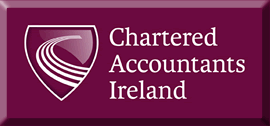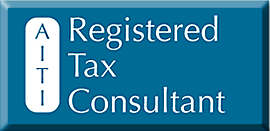Tax liability for Pensioners?
It’s hard to believe how Revenue can get something like this so wrong, but they have. 115,000 letters have being dispatched to pensioners resulting in 20,000 worried pensioners contacting the Revenue helpline on Friday and Saturday past, with phone lines expected to be ‘busy’ again today when they reopen. So how did Revenue get it so wrong?
The fact is, in the vast majority of cases, no additional tax arises. So why were letters issued at all to these pensioners? The fact is, Revenue should have done their analysis and then issued any letters necessary.
I have being contacted by numerous pensioners over the past few days who showed me the Revenue letters they have received. Had it not being the fact that I am an experienced tax professional, from reading the letter I would have assumed they had a tax liability too! Take one pensioner who approached me with a letter stating that additional tax would be deducted from his occupational pension. The fact is he is tax exempt (less than €36k total income for married couple) so he doesn’t have any tax liability at all!! The letter should have stated that his tax credits and bands will be adjusted accordingly for his occupational pension.
Pensioners with concerns are:
• pensioners with other income of greater than €50,000. Revenue have stated that there are approx. 2,500 pensioners in this category and these will be dealt with on a case by case basis
• self employed (e.g. farmers) who are in receipt of state pensions. These individuals (or their accountants) may have omitted the state pension income in their tax return, and if this is the case, they will be guilty of making a false return.
For these individuals, surcharges / penalties / interest will follow not to mention a possible Revenue audit. They should immediately review their tax return and amend if necessary.
In the following, I have summarised the types of state pensions which are taxable and how they are taxed.
Department of Social Protection (DSP) Pensioners
The 4 types of long-term pension payments are:
• State pension
• Transition pension (paid to people aged between 65 and 66)
• Widow’s/Widower’s/Surviving Civil Partner’s
• Invalidity pensions.
All income in Ireland is generally subject to taxation. Your social welfare payment may or may not be deemed taxable but even if your social welfare payment is taxable, you may not actually have to pay tax on it.
If you are getting a social welfare payment you will get a PAYE Tax Credit in addition to your normal tax credits. This means, if a social welfare payment is your only source of income you may not pay tax because your tax liability does not exceed your tax credits.
DSP payment only
If someone receiving a DSP pension has no other sources of income, they will not be liable for income tax on the DSP pension.
DSP payment and another income
If you have a DSP payment and another source of income, you may have to pay tax. In this case, your taxable social welfare payment and your other income are added together. You are taxed on the total amount. A person who is 65 years of age or over in 2012 may still not pay any tax if their total income for the year is likely to be less than €18,000, if single, or €36,000, if married.
There is no mechanism for taxing social welfare pensions at source (before it is paid to you). Your non-social welfare income determines how tax due is paid.
For example, you are getting a social welfare payment and an occupational pension. Your occupational pension is taxed through the Pay-As-You-Earn (PAYE) system in the same way as a wage or salary. This means that you get your tax credits in the normal way. In order to tax your social welfare pension, your standard rate cut off point is reduced by the amount of the social welfare pension, and your annual tax credits are reduced by the tax liability on your social welfare pension. You then effectively pay tax on both the pensions, but it is collected from the occupational pension. The technical term for this is coding in of credits. The same arrangement applies if you have income from a job and a social welfare pension. If your social welfare pension was not coded in, you would have to pay tax as a self-employed person and in a lump sum by 31 October each year. Patrick O Rourke, OKelly Sutton, Kildare. www.okellysutton.ie
If you enjoyed this post, please consider to leave a comment or subscribe to the feed and get future articles delivered to your feed reader.


 O'Kelly Sutton
O'Kelly Sutton
